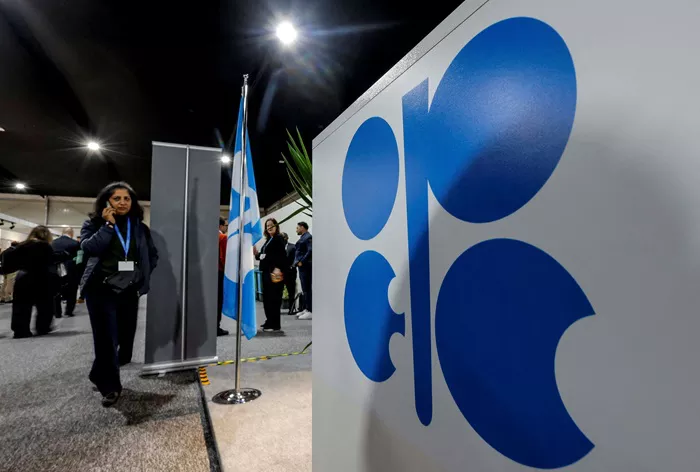OPEC+ is weighing the possibility of postponing its planned increases in oil production, set to begin in April, despite pressure from U.S. President Donald Trump to reduce prices. Sources familiar with the ongoing discussions have revealed that the oil cartel is concerned that global oil markets remain too fragile to handle additional supply at this time.
A decision on whether to delay the incremental production increase of 120,000 barrels per day has yet to be reached, with delegates stating that the group remains divided on how to move forward. However, a resolution could be finalized in the coming weeks.
If the decision is made to delay, it would mark the fourth time that the alliance, led by Saudi Arabia and Russia, has deferred plans to restore production levels that were cut back in response to the pandemic-induced downturn in 2022. The coalition’s broader goal is to gradually restore 2.2 million barrels per day in monthly increments by late 2026. Russian Deputy Prime Minister Alexander Novak reaffirmed that this target timeline remains unchanged, despite the ongoing deliberations.
The decision comes as President Trump renews his call for OPEC to “cut the price of oil.” However, with prices currently hovering around $74 per barrel, many OPEC members are finding it difficult to meet government spending needs, making a price cut a complex issue. Last week, OPEC Secretary-General Haitham Al-Ghais emphasized that the group’s decisions would prioritize long-term market stability over immediate pressures.
Harry Tchilinguirian, head of oil research at Onyx Commodities, acknowledged that there is a strong case for a production return in April but added, “The oil price will ultimately determine the decision.” The volatile state of the global oil market, compounded by factors such as U.S. trade tariffs, further complicates the situation. OPEC’s secretariat recently warned that trade tariffs have exacerbated market uncertainty, potentially leading to supply-demand imbalances and increased volatility.
Kazakhstan, one of the alliance members that has been slow to meet its production cut targets, reassured OPEC+ leaders that it would take additional steps to meet its commitments. Energy Minister Almassadam Satkaliyev engaged in talks with Saudi Arabia’s Energy Minister Prince Abdulaziz bin Salman, Russian Deputy Prime Minister Alexander Novak, and OPEC Secretary-General Haitham Al-Ghais to ensure further alignment.
OPEC+ initially announced plans to incrementally revive production in June of the previous year. However, slowing oil demand growth in China and increasing supply from the Americas have led to multiple delays. Proceeding with the planned increases now could potentially exacerbate an anticipated global oil surplus. According to the International Energy Agency (IEA), global supply is expected to surpass demand by an average of 450,000 barrels per day in 2025, even if OPEC+ maintains current output levels. Industry analysts from JPMorgan Chase & Co. and Citigroup Inc. predict that oil prices could dip into the $60s by the end of 2025.
Independent analyst Neil Atkinson, a former head of the IEA’s oil markets division, argued that OPEC+ would be wise to hold back on increasing supply given the current market conditions. “On current supply-demand balances, the market doesn’t really have room for more oil,” Atkinson said.


